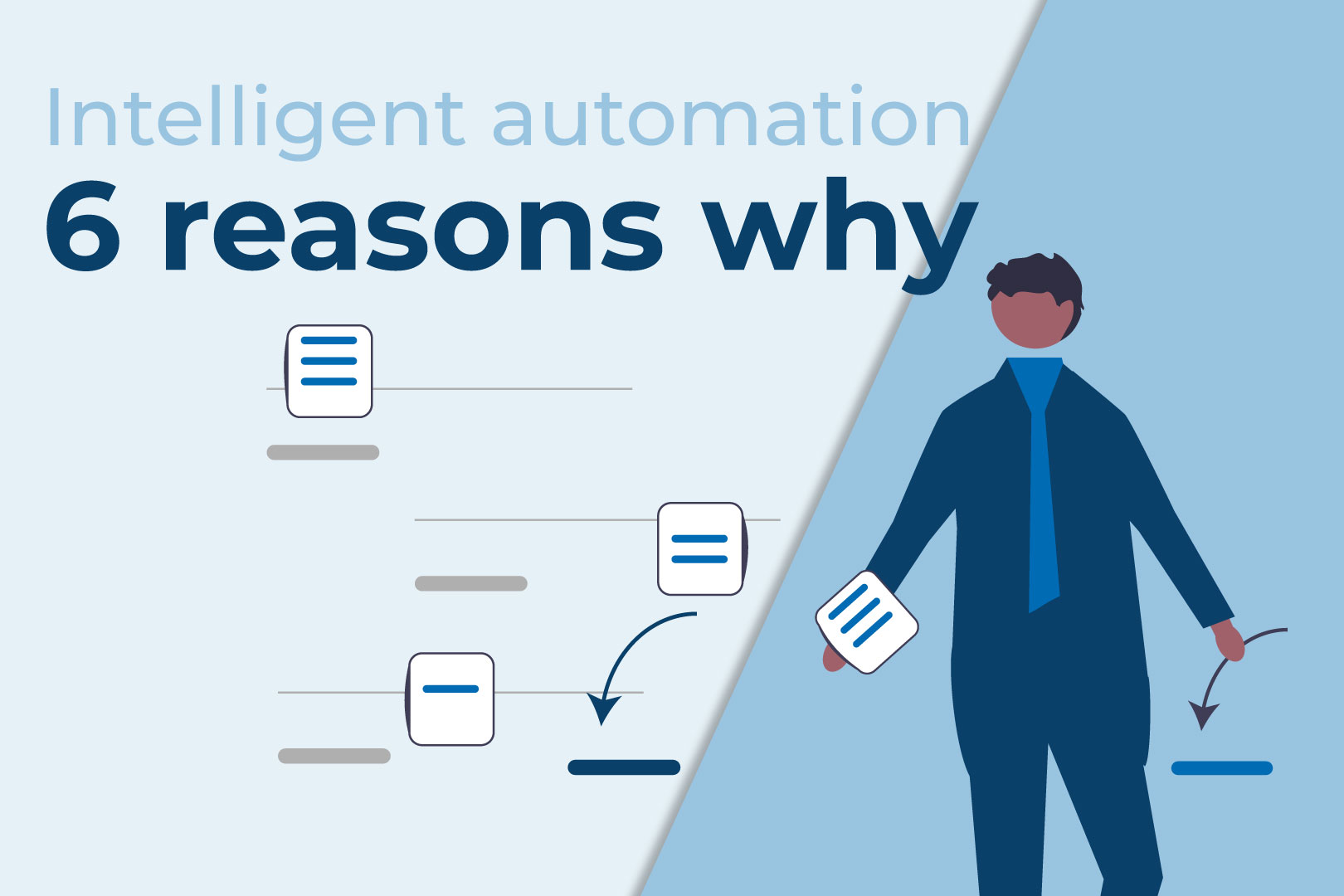Intelligent process automation (IPA) also known as Intelligent automation (IA) amalgamates different business technologies with artificial intelligence and machine learning to manage and automate complete business processes. IA is crafted to support human activities that integrate basic human-like intelligence with the automation processes enabling end-to-end business operations involving decision-making capabilities.
IA essentially demonstrates cognitive capabilities by leveraging specialized technologies such as:
- Natural language processing (NLP): Recognizing data in numerous languages helping organizations receive incoming documents in regional/local languages and multiple vendor formats.
- Machine Learning (ML): Improving data recognition and analytics by constantly learning and upgrading the recognition and drawing inferences from patterns in data.
- Computer Vision: IA excels at recognizing documents with technologies that extract valuable insights from digital images, and various visual inputs. It then utilizes these insights to initiate actions or offer recommendations, all while ensuring originality and accuracy in its processing.
Robotic process automation (RPA) is the first thing that comes to mind when we speak of automation, and it certainly has revolutionized the way automation is perceived but then why is the adoption ratio low? A recent study showed only 29% of companies are planning to implement automated business process management software in the near future.
Read in detail the limitations of RPA to delve deeper into the reasons. Essentially IPA helps organizations to overcome the limitations of RPA.

BENEFITS OF USING IPA
IPA offers a multitude of benefits that are improving the way businesses operate. It also provides organizations with the ability to make data-driven decisions in real time, leading to better decision making and improved customer experiences. The following list, explains these advantages:
- Intelligent automation solutions possess the ability to understand and process complex data sets, which can be used for various business applications, from making strategic decisions based on data to analyzing financial reports. IA greatly facilitates the informed decision-making process by providing accurate data with insights that can help reach informed decisions faster thus helping organizations to be agile.
- It has the capability of reading and capturing information from unstructured formats like scanned images, handwritten notes, etc., ensuring that various styles of handwriting and diverse layouts in the incoming documents do not hamper the business processes.
- IPA ensures complete scalability to growing workloads and the adoption of incremental hyper-automation strategies by making it adaptable to the changing needs of an organization.
- Through the reduction of human intervention, IPA effectively mitigates the likelihood of errors, enhancing precision across all business functions.
- Intelligent automation solutions streamline time-consuming, repetitive tasks, reducing the need for manual involvement and ultimately resulting in swifter and more efficient operations.
- This increased efficiency and reduced errors allow organizations to minimize the rework for each task, and maximize cost savings. Unlike bot-based RPA, intelligent automation does not require additional bot commissioning for each new process, thus saving the cost invested per robot. This results in more efficient use of resources and has a direct impact on both the top and bottom lines directly and indirectly.
The eBook on intelligent automation dives deeper into the details of intelligent automation.
Intelligent Automation, with its diverse range of applications, is transforming numerous sectors. From finance and healthcare to manufacturing and customer service. Organizations across various sectors are harnessing the potential and making the most of this intelligent automation solution.

CONCLUSION
In conclusion, Intelligent Process Automation (IPA) is indeed a robust solution across all sectors, from healthcare to finance and beyond. While it may initially sound complex, it, in fact, simplifies operations throughout the enterprise. The ease of adoption and the preparation, including training models and templates, make IA accessible and invaluable. It paves the way for smoother, more streamlined operations that save time, cut costs, and boost productivity holding the solution to scale with the pace of growing business scenarios.


